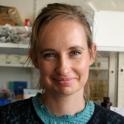Published on 22.10.2025
Presentation
Genetic disorders of the skeletal system may affect bone and/or cartilage formation from early embryo-fetal development up to childhood. Skeletal development is a temporally-regulated non-linear process orchestrated by a complex genetic network that proceeds via two distinct ossification mechanisms, namely membranous and endochondral. An impairment of this process is responsible for a group of rare and often severe disorders: the osteochondrodysplasia.
Our research aims to contribute to the understanding of the ossification process by:
- Identifying the molecular basis of osteochondrodyplasias, studying large cohort of patients clinically well characterized through the reference center for skeletal dysplasia.
- Developing novel therapeutic approaches in bone fragility disorders using human osteoblasts and mouse models.
- Deciphering proteoglycan synthesis impairment, in chondrodysplasia with multiple dislocations, using cellular and mouse models.
- Understanding the link between of ADAMTS(L) proteins and the related microfibrillar network, TGFb signaling, and ossification processes, using cellular and mouse models with short and tall stature phenotypes.
Team
Resources & publications
-
 2020Journal (source)Bone. 2020 Dec
2020Journal (source)Bone. 2020 DecNovel therapeutic approaches for the treatment of achondroplasia.
-
 2020Journal (source)J. Bone Miner. Res.
2020Journal (source)J. Bone Miner. Res.Fgfr3 Is a Positive Regulator of Osteoblast Expansion and Differentiation Dur...
-
 2020Journal (source)Bone
2020Journal (source)BoneBiallelic variants in KYNU cause a multisystemic syndrome with hand hyperphal...
-
 2020Journal (source)J. Bone Miner. Res.
2020Journal (source)J. Bone Miner. Res.Homozygous Loss-of-Function Mutations in CCDC134 Are Responsible for a Severe...
-
 Journal (source)Ther Adv Endocrinol Metab. 2020
Journal (source)Ther Adv Endocrinol Metab. 2020New perspectives on the treatment of skeletal dysplasia.
-
 2019Journal (source)Neurochirurgie
2019Journal (source)NeurochirurgieAnimal models of craniosynostosis.
-
 2019Journal (source)FASEB J
2019Journal (source)FASEB JImpairment of chondrogenesis and microfibrillar network in Adamtsl2 deficiency.
-
 2018Journal (source)Nat Commun.
2018Journal (source)Nat Commun.SLC10A7 mutations cause a skeletal dysplasia with amelogenesis imperfecta med...
-
 2018Journal (source)Eur J Hum Genet
2018Journal (source)Eur J Hum GenetExpanding the phenotypic spectrum of variants in PDE4D/PRKAR1A: from acrodyso...
-
 2018Journal (source)J Med Genet
2018Journal (source)J Med GenetFAM46A mutations are responsible for autosomal recessive osteogenesis imperfe...
-
 2018Journal (source)Hum. Mol. Genet.
2018Journal (source)Hum. Mol. Genet.Constitutively-active FGFR3 disrupts primary cilium length and IFT20 traffick...
-
 2017Journal (source)Dev. Dyn.
2017Journal (source)Dev. Dyn.Achondroplasia: Development, pathogenesis, and therapy.
-
 2014Journal (source)Am J Hum Genet
2014Journal (source)Am J Hum GenetXYLT1 mutations in Desbuquois dysplasia type 2.
-
 2013Journal (source)Am J Hum Genet
2013Journal (source)Am J Hum GenetWDR34 mutations that cause short-rib polydactyly syndrome type III/severe asp...
-
 2011Journal (source)Nat Genet
2011Journal (source)Nat GenetMutations at a single codon in Mad homology 2 domain of SMAD4 cause Myhre syn...
-
 2009Journal (source)Am J Hum Genet
2009Journal (source)Am J Hum GenetIdentification of CANT1 mutations in Desbuquois dysplasia.




